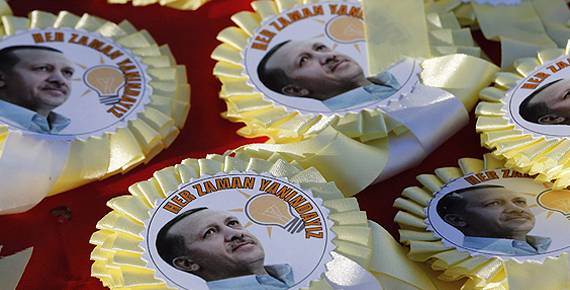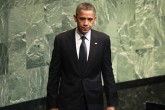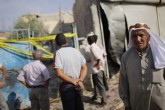Tomorrow will mark the fourth AK Party congress, in which the party will make a general evaluation and determine a new vision to be tested in the three upcoming elections. New figures in the party will reveal their identities and representative power, and a new political vision will be declared, which will influence the future of both the AK Party and Turkey. On the occasion of the congress, a political evaluation of the last decade of the AK Party is appropriate and timely. It is possible to divide the last decade of AK Party rule into four categories in order to make such an evaluation.
Resistance without contestation
The EU membership process considerably influenced the first four-year period of AK Party rule from 2002 to 2006. The party came to power in a time when the stifling political environment of the February 28 process dominated the political arena alongside a severe economic crisis and society-wide hopelessness. When the AK Party came to power, it focused on the EU accession process in order to eliminate concerns about its credentials, to open up the political domain whose power was curbed by tutelary institutions, and to develop a democratic initiative towards resolving long-standing political problems. It is possible to say that during this period, the AK Party was neither willing to succumb to the establishment nor was it ready to engage in an open conflict. The EU accession process contributed greatly not only to increasing civilians’ participation in domestic and foreign policy-making but also to hindering the military’s influence over civilian politics.
Struggle by confrontation
The period of resistance without contestation ended just before presidential elections were held. Those elections forced both the AK Party and tutelary actors to confront each other in the field. In this sense, a pitched battle between the AK Party and tutelary actors marked the period between 2006 and 2009. The milestones of this battle include the Republican rallies, the April 27 memorandum, the Constitutional Court’s ‘367’ ruling, the 22 July elections, the drafting of the new constitution, the closure case against the AK Party and the Ergenekon case. That the closure case resulted in the party’s favor proved its victory over the establishment and eroded the resistance of tutelary actors to tone down the struggle. Tutelary actors admitted that they are incapable of closing the AK Party while they also showed that they will not give up the struggle.
Elimination and construction
The failure to close the AK Party and Ergenekon case launched a new period from 2009 to 2011: elimination and political construction. The primary dynamic of this phase is the elimination of tutelary actors, notably the military officers who resorted to anti-democratic instruments through cases like Ergenekon and Balyoz. The AK Party gave political support to these cases and paved the way for these cases to be brought before to the court through legal regulations. As these cases provided a democratic foundation for new civil-military relations, the military itself was removed from its influence role in politics.
The elimination of the tutelary actors enabled confrontation with tutelary ideology. The opening process indicated a vision to resolve the problems caused by the secular/pan-Turkic nation building project from which tutelary ideology benefited. This process also aimed at recognizing political identities which were excluded from the definition of a desirable citizen by the state and society.
The referendum process followed the military cases and opening policies. Although the referendum package primarily aimed to abolish the tutelage of the judiciary, which had positioned itself as the new guardian of the regime, it also represented not only the will to democratize the tutelary political system that was established in the wake of the 1961 Constitution but the last round of the ongoing struggle as well.



